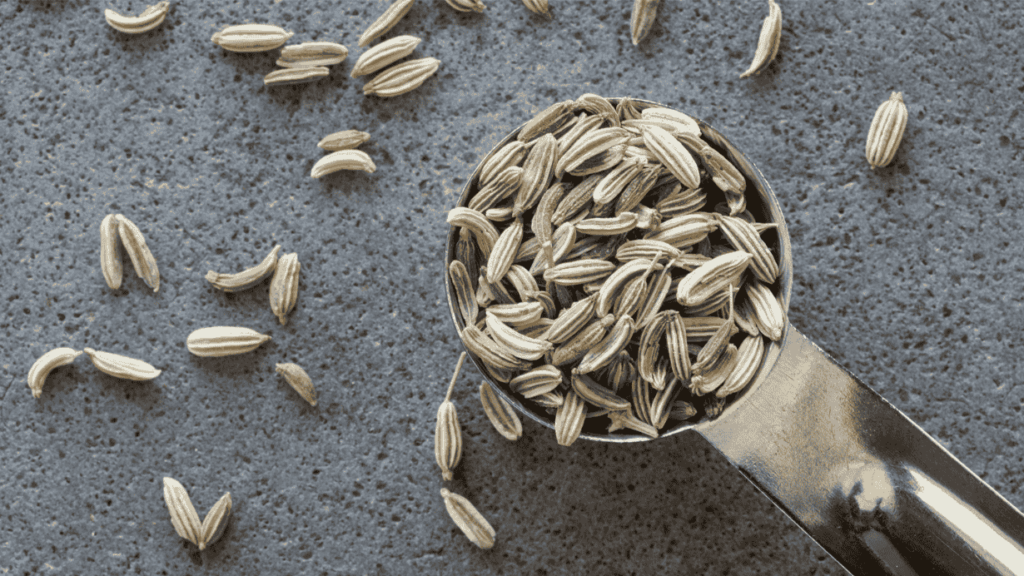Fresh Funnel Seeds





Funnel Seeds
Menu

| Heading | Information |
|---|---|
| Funnel Seeds | Licorice-flavored seeds used for digestion, teas, and Mediterranean cooking. |
| Producing Countries | India, Mediterranean |
| Producing Benefits | Rich in Antioxidants: Fennel seeds are high in antioxidants like flavonoids, which help protect the body from free radical damage and reduce oxidative stress. Improved Digestion: Fennel seeds have been used traditionally to relieve indigestion, bloating, and gas. They help promote smooth digestion and ease discomfort. Anti-inflammatory: Fennel seeds contain compounds that have anti-inflammatory properties, helping reduce inflammation in the body, which can be beneficial for conditions like arthritis. Supports Heart Health: Fennel seeds can help reduce high blood pressure and cholesterol levels due to their potassium and fiber content, supporting cardiovascular health. Hormonal Balance: Fennel seeds contain phytoestrogens, which can help balance estrogen levels, making them beneficial for women’s health, especially during menopause. Rich in Fiber: Fennel seeds are a good source of dietary fiber, which helps maintain healthy digestion, regulate bowel movements, and promote gut health. Breastfeeding Aid: Fennel seeds are commonly used to increase milk supply in breastfeeding mothers due to their galactagogue properties (substances that promote milk production). |
| Ingredients | Fennel Seeds: Fennel seeds come from the fennel plant (Foeniculum vulgare), which belongs to the carrot family. The seeds are the dried fruits of the plant and are often used whole or ground. Possible Additives: Fennel seeds are generally sold in their natural form without additives. However, ground fennel powder may sometimes contain anti-caking agents or preservatives in commercial packaging. |
| Allergen | Potential Allergies: Fennel seeds are generally considered safe, but some individuals may have allergic reactions to fennel, especially if they are sensitive to other members of the carrot family (such as dill, caraway, or anise). Individuals allergic to celery may also be at risk. Cross-Contamination: Fennel seeds may be processed in facilities that also handle other spices, seeds, or nuts, which could increase the risk of cross-contamination for those with nut or seed allergies. |
| Storage | Cool, Dry Place: Store fennel seeds in a cool, dry place, away from heat and direct sunlight to preserve their flavor and aroma. Airtight Container: After opening, fennel seeds should be stored in an airtight container to protect them from moisture and preserve their freshness. Whole vs. Ground: Whole fennel seeds last longer than ground fennel, so it’s best to store them whole and grind them as needed. Ground fennel should be used within a few months for the best flavor. Refrigeration: Fennel seeds do not require refrigeration but can be stored in the fridge if you live in a humid or hot climate to prolong shelf life. |
| Nutrition Facts | Nutrition Facts (per 1 teaspoon or ~2.1 grams of fennel seeds): Calories: Approximately 8 kcal Total Fat: 0.4 g Saturated Fat: 0.03 g Sodium: 0 mg Total Carbohydrates: 1.8 g Dietary Fiber: 1.0 g Sugars: 0.3 g Protein: 0.3 g Vitamins and Minerals: Vitamin C: 0.5 mg Calcium: 10 mg Iron: 0.3 mg Magnesium: 6 mg Potassium: 14 mg Manganese: 0.1 mg |


